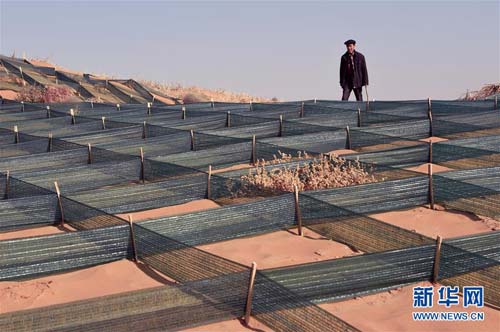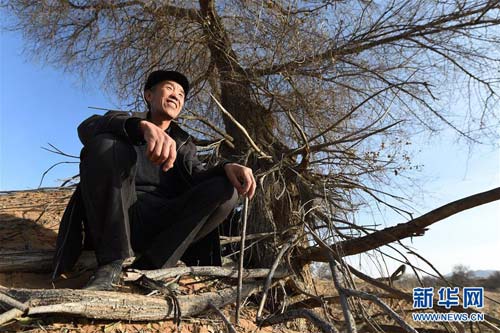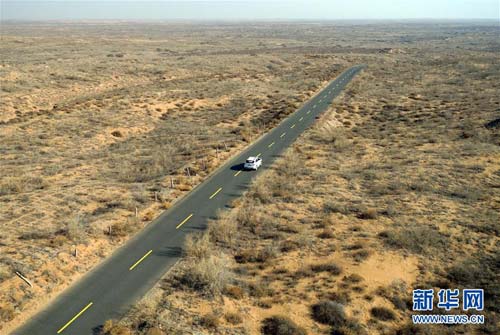Local
In Gansu, a desert war has raged quietly for decades
Updated: 2016-12-16By Ge Jieru ( chinadaily.com.cn )
After more than 30 years of painstaking land reclamation work across two generations, the might of a desert advance in Gansu’s Gulang county seems to have been halted.
Lying between the Tibetan and Loess plateaus, Gulang county has an intensely dry and arid landscape. Desertification caused by changes in the earth’s climate and environmental damage has wreaked havoc in the province over the last few decades, threatening Gulang’s social economic development and the livelihoods of the 30,000-some people who live there.
Rather than bow down to the desert advance, local farmers from Gulang county decided to plant trees to improve soil absorption and stop the spread of deserts by fixing the sand in place.
In the early 1980s, six local farmers, led by Guo Chaoming, started to grow trees in the desert region of Gulang’s Babusha. After signing a contract with the local government, the farmers were permitted to grow trees in a 75,000-square-meter area.
Birch and elm trees were planted in a checkerboard pattern, with a sand barrier to protect the soil.
After 10 years of toil, the rate of desertification has slowed and grain output has increased.
The original farmers who started the desert control work bowed out to old age in the 1990s, passing the baton on to the next generation.
The next generation of those six old farmers took over the shovel and continued the work of their fathers by planting more trees.
“Planting trees has successfully controlled desertification. The windy weather in Babusha region has decreased and the sand line in Gulang county has backed up for 15 kilometers,” said Guo Wangang, son of Guo Chaoming, one of the original farmers.
More importantly, the grain output of the region has largely increased, according to Guo.
 |
|
Guo Wangang checks the condition of a checkerboard desert control site on Nov 24. [Photo/xinhuanet.com] |
 |
|
Guo Wangang rests under a tree that he helped plant 30 years ago. [Photo/xinahuanet.com] |
 |
|
Shrubbery and dune plants have been introduced to Heigangsha in Gulang county to fix the sand in place and prevent major shifts. [Photo/xinhuanet.com] |


